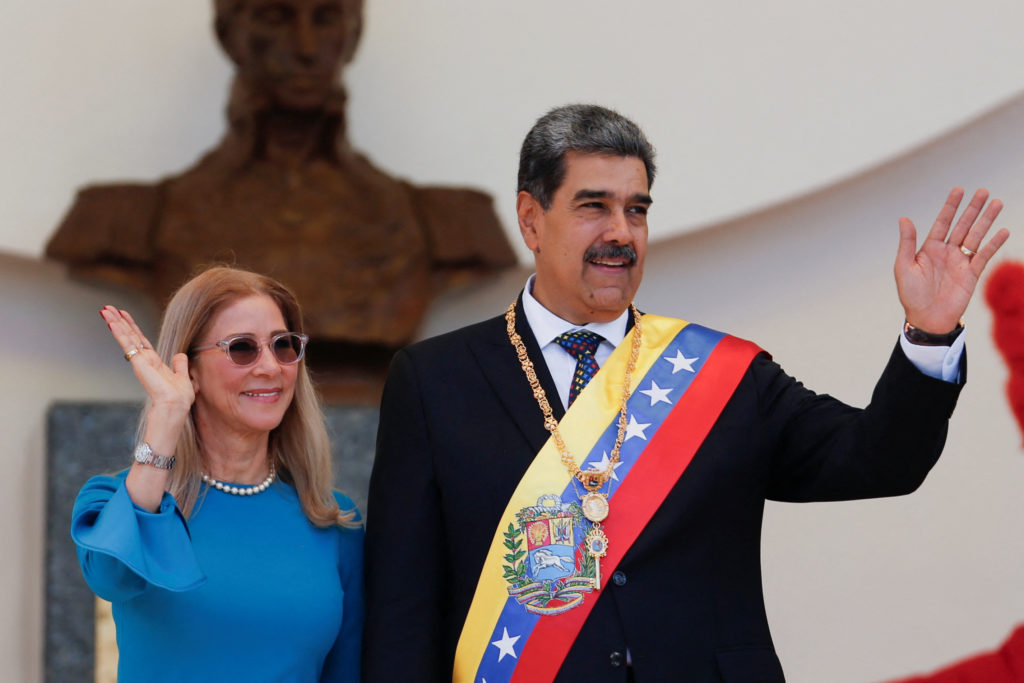In the high-stakes world of international espionage, trust is the most valuable currency, and for any leader, few are entrusted more than the person who controls their passage through the skies. A startling real-life thriller is now unfolding between Washington and Caracas, centering on a clandestine American operation to allegedly “flip” the most trusted aviator in Venezuela: President Nicolás Maduro’s personal pilot.
This is not a scene from a Hollywood script but a reported covert plot that reads like the pinnacle of geopolitical intrigue. The mission’s objective was as audacious as it was simple: to turn the one man who flies the Venezuelan president on his crucial state visits to allies like Moscow, Tehran, and Havana. The promised incentives? A classic trifecta of espionage: safety for himself and his family, a substantial financial payout, and a secure pathway out of the country.
The pilot, whose role has until recently been shrouded in the anonymity reserved for top-tier security personnel, is more than just a skilled aviator. He is a key enabler of Maduro’s foreign policy, facilitating the Venezuelan leader’s strategic partnerships with global powers often at odds with the United States. Every flight to Moscow fortifies military and energy ties; every journey to Tehran deepens an alliance built on circumventing Western sanctions; every trip to Havana reinforces a decades-old ideological bond.
For U.S. intelligence agencies, this individual represented a unique and potentially invaluable asset. Successfully recruited, he could provide a treasure trove of information: intimate knowledge of Maduro’s travel security protocols, private conversations between the Venezuelan leader and his counterparts, and potentially even the ability to control the president’s mobility at a critical moment.
The revelation of this plot sends a powerful message far beyond the Caribbean. For nations across Africa and the Global South, it serves as a stark case study in the lengths to which world powers will go to exert influence and secure their interests.
A Familiar Playbook in a New Theater
While the details are dramatic, the strategy is a page from a well-thumbed espionage manual. The targeting of a close confidant—a driver, a bodyguard, or in this case, a pilot—is a time-tested tactic. It highlights a critical vulnerability for all leaders: the absolute reliance on a small circle of personnel. This story forces a moment of reflection for governments worldwide on the vetting and security surrounding their most trusted aides.
The alleged offer of “safety, money, and a way out” is also a universal lever. It underscores how geopolitical conflicts are often fought not just on battlefields or in diplomatic chambers, but in the private fears and ambitions of individuals caught in the middle.
Implications for Sovereignty and Power Dynamics
The unfolding scandal raises profound questions about sovereignty and foreign intervention. From a Pan-African perspective, it echoes historical and contemporary concerns about external powers operating covertly within sovereign nations to effect regime change or shift political alignment. The line between diplomatic pressure and covert action is a fine one, and this incident blurs it dramatically.
For Venezuela, the exposure of the plot—whether it failed or was preemptively revealed—is a propaganda victory for Maduro, allowing him to frame his government as the target of imperialist aggression. For Washington, it demonstrates a continued, aggressive campaign to destabilize the Maduro regime, even as other policy options are explored.
As this espionage thriller continues to develop, the world watches, and presidential security details everywhere are likely conducting urgent, internal reviews. The man in the cockpit is now at the center of a storm, a poignant reminder that in the modern game of nations, the most significant battles can be fought over the loyalty of a single individuals.
🇻🇪 The Man in the Cockpit: A Covert U.S. Plot to Flip Maduro’s Personal Pilot

Leave a Reply